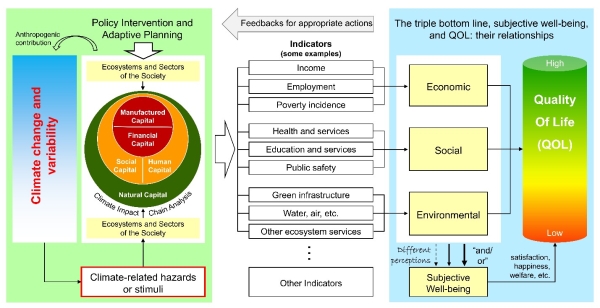Information of Paper
Authors:Ronald C. Estoque, Takuya Togawa, Makoto Ooba, Kei Gomi, Shogo Nakamura, Yasuaki Hijioka, and Yasuko Kameyama
Year:2018
Journal:AMBIO, https://doi.org/10.1007/s13280-018-1090-3
Link to the paper
Keywords
Climate change; QOL; Quality of life; Social indicators; Vulnerability; Well-being
Abstract
Quality of life (QOL), although a complex and amorphous concept, is a term that warrants attention, especially in discussions on issues that touch on the impacts of climate change and variability. Based on the principles of RepOrting standards for Systematic Evidence Synthesis, we present a systematic review aimed at gaining insights into the conceptualization and methodological construct of previous studies regarding QOL and QOL-related indexes. We find that (i) QOL assessments vary in terms of conceptual foundations, dimensions, indicators, and units of analysis, (ii) social indicators are consistently used across assessments, (iii) most assessments consider indicators that pertain to the livability of the environment, and (iv) QOL can be based on objective indicators and/or subjective wellbeing, and on a composite index or unaggregated dimensions and indicators. However, we also find that QOL assessments remain poorly connected with climate-related issues, an important research gap. Our proposed ‘‘QOL-Climate’’ assessment framework, designed to capture the social-ecological impacts of climate change and variability, can potentially help fill this gap.





